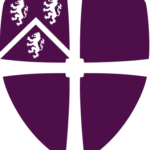
This intensive 3-day workshop for early career researchers will take place Monday 11 – Wednesday 13 September 2017 at Durham University, with the support of the British Academy and the Wellcome Trust.
Work in the critical medical humanities brings together scholars from the arts, humanities, social and life sciences, health professionals, patient advocates, carers and experts by experience to pursue a deeper understanding of health and illness. The field is increasingly oriented towards inter- as well as multi-disciplinary practice, and to large-scale collaborations involving multiple stakeholder groups. Much has been written and said about the importance of an interdisciplinary approach to the study of health, broadly conceived. Yet there is surprisingly little discussion of how in practical terms this can and should be achieved, and even less about the roles, responsibilities and opportunities for ECRs in navigating the complexities not just of cross-disciplinary but also of cross-sector working. Particularly where questions of distress, disease, disability and health inequalities are to the fore, the frameworks and practices which bring people together require more than good intentions to be effective.
This three-day intensive workshop will engage early career researchers who have some experience of working collaboratively in the medical humanities, whether in a research, community or public engagement context. Using a range of innovative formats which draw on the expertise of those assembled, we will interrogate what ‘best practice’ in collaborative medical humanities looks and feels like by exploring topics such as:
- Understanding disciplinary commitments and conflicts
- Techniques for the creative facilitation of meetings, seminars and workshops
- Who does the work, who gets the credit?
- Practical strategies for engaging clinical, patient and activist groups
- Making sense of awkwardness, ambivalence and failure
As well as giving participants the opportunity to enhance their understanding of and, crucially, practical skills in working collaboratively, we hope that this workshop will help facilitate the creation of a dynamic and ultimately self-sustaining network of researchers working at the critical cutting edge of the field.
Who’s involved?
Collaboration in the Critical Medical Humanities will be led by Dr Angela Woods, School of Medicine, Pharmacy and Health/English Studies, University of Durham, and Mary Robson, Creative Facilitator, with confirmed contributions from:
- Dr Ben Alderson-Day, Psychology, University of Durham;
- Dr Luna Dolezal, Philosophy, University of Exeter
- Dr Bethan Evans, Geography, University of Liverpool
- Dr Robbie Duschinsky and Dr Sophie Reijman, Department of Public Health and Primary Care, University of Cambridge
- Dr Des Fitzgerald, School of Social Sciences, Cardiff University
- Dr Erinma Ochu, School of Environmental and Life Sciences, University of Salford
- Dr João Rangel de Almeida, Wellcome Trust
Practical Details
- The workshop will run from 11am Monday 11 September – 2pm Wednesday 13 September 2017 at St Chad’s College, University of Durham. A follow-up day will be held at the Wellcome Trust in London on February 19 2018.
- Applications for a place on the workshop are invited from early career researchers (broadly defined) working in any area of the medical humanities. We anticipate that academic applicants will be between 2-10 years post-PhD. Details about the application process, including a link to the online form, are available below.
- There is no charge to participants to attend the workshop. Meals and college accommodation will be provided; however, participants must cover their own travel expenses. We will do our very best to accommodate all access requirements within the architectural limitations of Durham.
- Following the workshop, participants will be encouraged to contribute to Working Knowledge – an online collection of practical resources for anyone interested in embarking on or funding interdisciplinary research.
Application Process
Applications are invited from early career researchers working in any area of the medical humanities or allied fields.
To apply, please complete the CCMH Application Form and send it with a current CV to congress administrator Jane Abel by Friday 17 June 2017.
Applicants will be selected by a project steering committee on the basis of their demonstrable commitment to collaborative working in the medical humanities and to ensure a mix of disciplines, areas of expertise, and career stages.

